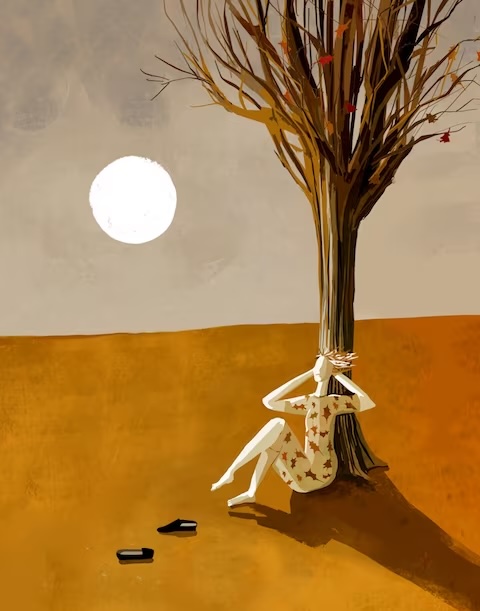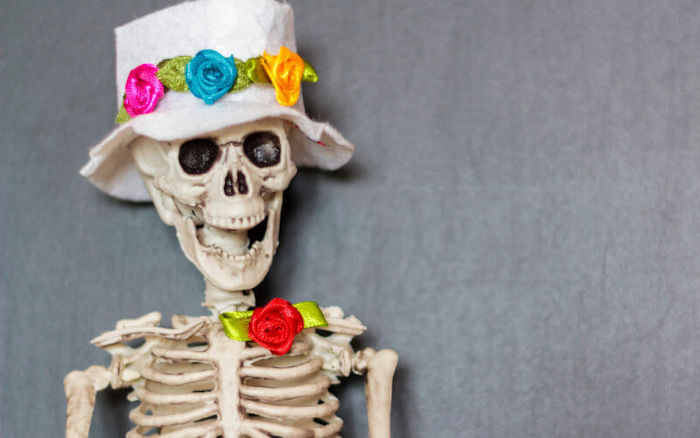— It may never feel like the “right” time to have these conversations, but experts say you shouldn’t hold off.

By Kelsey Borresen
Talking to your parents about their end-of-life wishes may feel like an uncomfortable or morbid topic to bring up, and one that’s tempting to avoid altogether. But you don’t want to wait until your parents are in the midst of a health crisis to have these discussions when stress levels are high and they may have trouble communicating their wishes.
According to The National Hospice Foundation, talking about end-of-life wishes preemptively “greatly reduces the stress of making decisions about end-of-life care under duress. By preparing in advance, you can avoid some of the uncertainty and anxiety associated with not knowing what your loved ones want. Instead, you can make an educated decision that includes the advice and input of loved ones.”
We asked end-of-life experts to share some of the uncomfortable but important questions to ask your parents. Below, they also offer advice on how to approach these daunting conversations.
1. Do you have an up-to-date advance care directive?
Advanced directives include legal documents such as a living will and medical power of attorney. A living will explains what health care treatment a person would — and would not — like to receive near the end of life, or if they are otherwise unable to speak for themselves. A medical power of attorney — sometimes referred to as a durable power of attorney for health care — is a document naming the person who will be responsible for making medical decisions if the patient cannot. It’s important that your parents not only put these preferences in writing, but also talk through them with you so you can properly honor their wishes.
Only one-third of Americans have advanced care directives in place, “leaving family members often struggling to determine what their parent’s wishes are or making choices that they may not have made for themselves,” Loren Talbot, director of communications for the International End-Of-Life Doula Association (INELDA), told HuffPost. “There are resources that are culturally competent and multi-language guides to help walk your folks through the process. Make sure you review by the state you live in.”
To get started, Talbot recommended resources such as The Conversation Project, Five Wishes and My Directives.
Dr. VJ Periyakoil is a palliative care doctor, as well as the founder and director of the Stanford Letter Project, a tool that helps people plan for their future including end-of-life medical care, using different letter templates.
For example, their “What Matters Most” template “helps a person write a letter to their doctor and health care team about their goals of care and their values,” Periyakoil told HuffPost. “Family members can use our letter template to have a gentle conversation with their parents and help them complete their letter advance directive to their doctor.”
It includes prompts about how medical decisions are made in the family, how bad news is handled, whether they’d want to be put on a ventilator (breathing machine) or sedated if they were in extreme pain.
“The goal of this conversation is to ensure that our parents have a voice in their care and give them ample opportunity to provide us with anticipatory guidance,” Periyakoil told HuffPost.
2. Have you thought about what you want the end of your life to look like? If so, can you share what you’re envisioning?
Some folks have a clear picture of what they want theirs to look like; others may avoid such thoughts, Talbot said. This question will help you understand their desires so you know how to best support them when this time comes.
“Just let them talk at that moment and listen. Some possible follow-up could be: Do you know where you want to be — home or care facility? What would the room look like? Does it have pictures of their loved ones pinned up or specific music playing as they are actively dying?” she said.
“Some of the same choices we make during life, we can plan for at death. Do you want to have any rituals or customs take place prior to death? There are so many questions that can be shared to help people really define their needs. End-of-life doulas are trained in asking these questions, and can support individuals and their families to create a plan.”
“The time to broach the conversation is now. It doesn’t serve you or your loved one if you continue to avoid it or ignore the reality of death.”
– Aditi Sethi, hospice physician and end-of-life doula
To help guide these conversations, Talbot recommended resources such as The Death Deck, Death Over Dinner, GoWish Cards, or connecting with an end-of-life doula via the INELDA Directory.
You might also ask about how flexible your parent is about potential living arrangements in the event that their caregiving needs increase, said hospice physician and end-of-life doula Aditi Sethi.
For example: “Would you move into our home with our three kids so we could take care of you? Or could we move in with you?” Sethi, who is also the executive director of Center for Conscious Living and Dying, told HuffPost.
“There is fear amongst some parents that their children are too busy to care for them or incapable for various reasons. With our caregiver crisis, aging population, undesirable options for care — few people want to go to nursing homes and few can afford 24/7 care in the home — it is imperative that we all get creative and let go of being rigid to how it ought to be.”
3. What do you expect of me and your other kids as you approach your dying season?
This conversation might include asking your parents about how involved they’d like you to be with things like personal care — bathing them or repositioning them in bed, for example.
“Being clear with your loved ones about their wishes for their care, assumptions and expectations of your involvement, can alleviate the stress of having to decide at the last minute or do something that will cause more agitation, resentment and hard feelings,” Sethi said.
“This is especially true for cultural norms and expectations in a modern world where children are not always local and there may be some unspoken assumptions and expectations of them that may not be met due to obligations, commitments,” she added.
4. What do you want us to do with your belongings after you’re gone?
Dealing with a deceased loved one’s possessions “can be a daunting task if not addressed or discussed prior to a death” — and one that can stir up a lot of conflict among living family members, said Sethi. So it’s best to talk this through with your parents ahead of time.
“There is much involved in distributing, selling, discarding or dispersing of belongings, cherished objects, furniture, cars, house, etc.,” she said. “It’s helpful for your loved ones still alive if you organize paperwork, designate your wishes for where personal objects are going — this avoids disagreements, drama and ambiguity — and get your affairs in order as much as possible before you go.”
5. What would you like to happen to your body after you die?
While it’s important to talk about their preferences for how their belongings are handled, it’s also important to discuss what will happen to their physical body.
“Do they know what their options are after they die? Have they considered a brain donation, what type of service they want, a home funeral, a green burial, a traditional funeral or cremation?” Talbot said. “There are so many more options today then they may even know. Knowing and asking what they may want after death is honoring their autonomy during their life.”
6. If you die before your spouse, what resources are available to help mom/dad as they age?
These resources might include long-term care insurance or money set aside for the care of an aging parent, Sethi said.
“Some parents have already bought into a retirement community. It’s important to know these things to best care for your living parent,” she said.
Advice On How To Broach These Conversations
End-of-life professionals share guidance on how to approach these difficult conversations with your parents.
First, know that it may never feel like the “right” time to talk about your parents’ end-of-life wishes. Don’t put off these conversations or wait for the perfect moment to strike because then they may never happen.
“The time to broach the conversation is now,” Sethi said. “It doesn’t serve you or your loved one if you continue to avoid it or ignore the reality of death.”
If you try to talk about end-of-life wishes when your parents are healthy, it’s possible they’ll think it’s “too premature,” she said.
“If you do it over the holiday dinner table when all the family is together, it’s ‘too serious,’ ‘too morbid’ or ‘not the proper time,’” Sethi said.
But if you hold off on talking about this until they’re diagnosed with a terminal illness, your family may still want to avoid having these discussions because it seems pessimistic, and they’d rather stay hopeful that things will turn around.
“And then, as someone is clearly dying, family may not want to broach the conversation for fear it may cause anxiety or depression — and oftentimes family and friends don’t now how to broach this conversation,” Sethi said.
She suggests revisiting end-of-life discussions roughly every three to five years or when there’s a major life event such as a divorce, serious diagnosis or decline in their health.
To open up the discussion, Periyakoil said you can try this pitch, which she has tested and said “works really well.”
“I am getting old, and you both are getting older. This is a wonderful thing for our family, and I hope we have many wonderful years together. As we prepare for the future, I would like us to think about completing some simple forms that will help our doctors and our family best support us,” she told HuffPost.
“If you get push back like, ‘Not now!’ or ‘It’s too early,’ you should gently respond, ‘It is always too early until it is too late.’”
No adult is ever too young or too old to start discussing these decisions, Periyakoil said. In fact, when you’re having these conversations with your parents, you can also start to contemplate your own preferences if you haven’t already.
Another way into the conversation is by leaning into what your family is interested in, Talbot said.
“If they love movies, there are so many great end-of-life films out there. If they or you love hosting dinner parties, consider a ‘Death Over Dinner’ night. Having conversations about planning for end-of-life and death can be healing and help to alleviate family conflict and unrecognized wishes.”
Complete Article ↪HERE↩!









